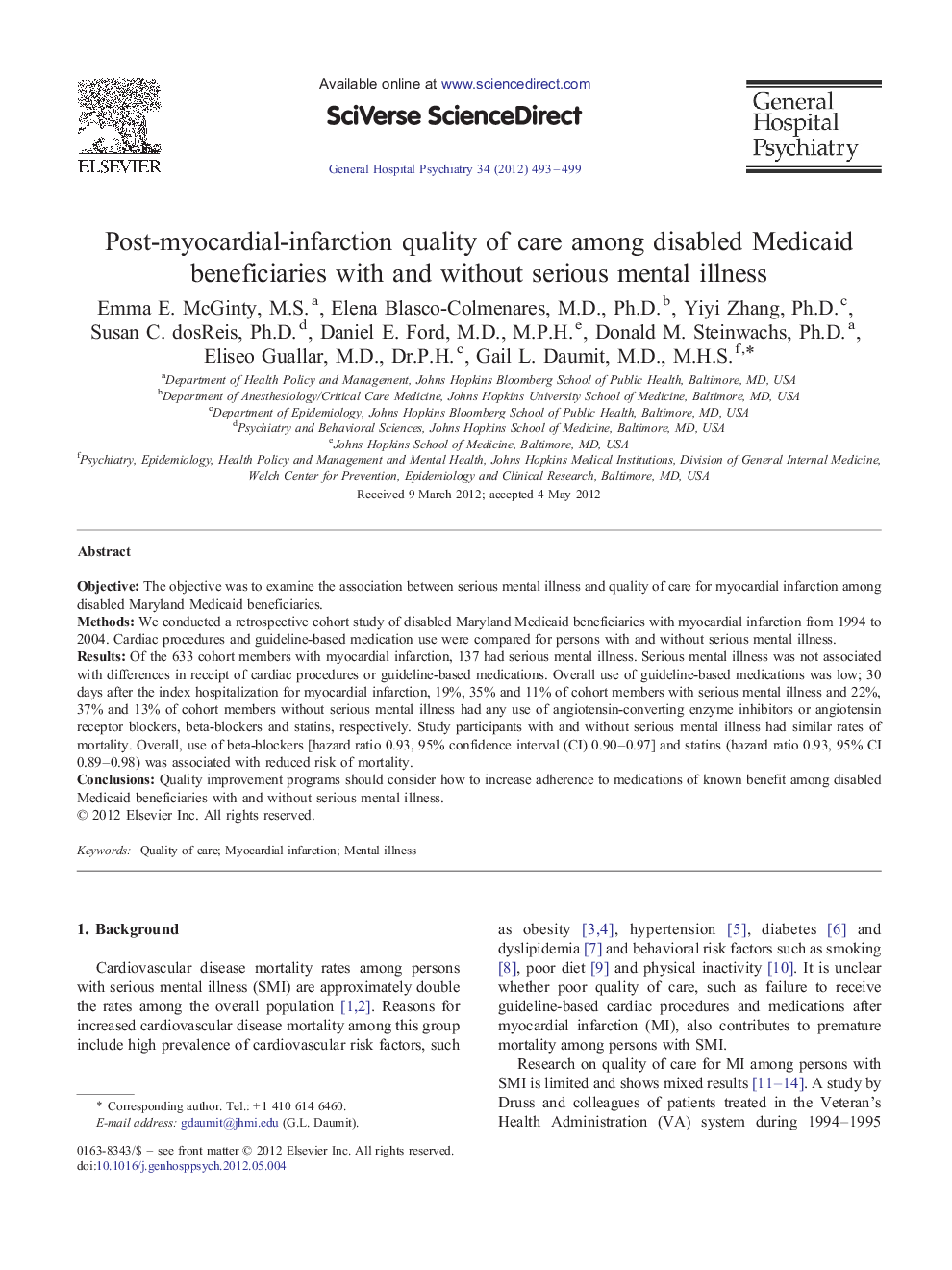| Article ID | Journal | Published Year | Pages | File Type |
|---|---|---|---|---|
| 6082368 | General Hospital Psychiatry | 2012 | 7 Pages |
ObjectiveThe objective was to examine the association between serious mental illness and quality of care for myocardial infarction among disabled Maryland Medicaid beneficiaries.MethodsWe conducted a retrospective cohort study of disabled Maryland Medicaid beneficiaries with myocardial infarction from 1994 to 2004. Cardiac procedures and guideline-based medication use were compared for persons with and without serious mental illness.ResultsOf the 633 cohort members with myocardial infarction, 137 had serious mental illness. Serious mental illness was not associated with differences in receipt of cardiac procedures or guideline-based medications. Overall use of guideline-based medications was low; 30 days after the index hospitalization for myocardial infarction, 19%, 35% and 11% of cohort members with serious mental illness and 22%, 37% and 13% of cohort members without serious mental illness had any use of angiotensin-converting enzyme inhibitors or angiotensin receptor blockers, beta-blockers and statins, respectively. Study participants with and without serious mental illness had similar rates of mortality. Overall, use of beta-blockers [hazard ratio 0.93, 95% confidence interval (CI) 0.90-0.97] and statins (hazard ratio 0.93, 95% CI 0.89-0.98) was associated with reduced risk of mortality.ConclusionsQuality improvement programs should consider how to increase adherence to medications of known benefit among disabled Medicaid beneficiaries with and without serious mental illness.
